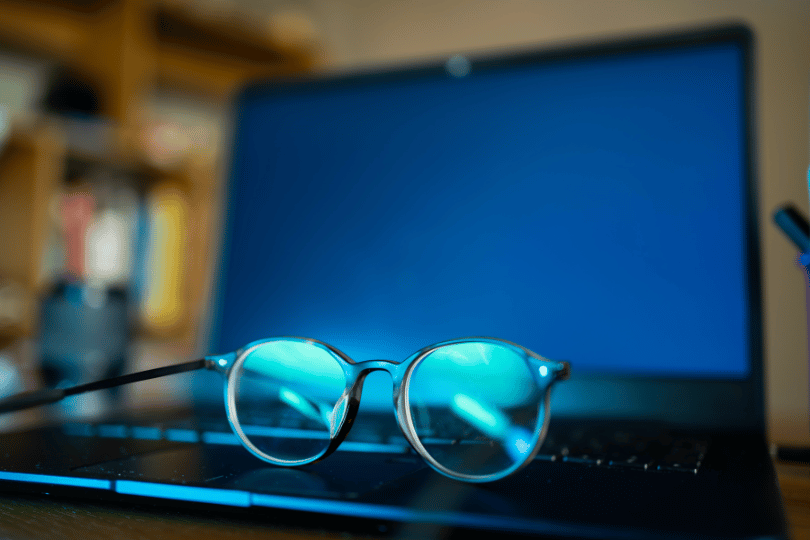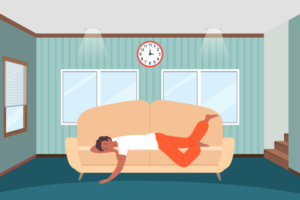In the digital age, we spend a significant amount of time in front of screens, be it computers, smartphones, or televisions. These screens emit a type of light known as blue light. While not all blue light is harmful, excessive exposure, especially at night, can disrupt our sleep cycle and cause digital eye strain. This is where blue light blocking glasses come into play. But are they really beneficial? Let’s delve into it.

What are Blue Light Blocking Glasses?
Blue light blocking glasses have specially crafted lenses that are said to block or filter out the blue light given off from digital screens. The lenses claim to protect your eyes from glare and can help reduce potential damage to your retina from prolonged exposure to blue light.
The Benefits
Reduced Digital Eye Strain: Digital eye strain, characterized by dry eyes, headaches, and fatigue, is a common problem for people who spend hours looking at screens. Blue light glasses can help reduce these symptoms.
Improved Sleep: Exposure to blue light late at night can interfere with the production of melatonin, a hormone that regulates sleep. By blocking blue light, these glasses can help improve sleep quality.
Potential Retina Protection: Some studies suggest that long-term exposure to blue light may contribute to damage to the light-sensitive cells in the retina. Blue light glasses are believed to reduce this risk, although more research is needed in this area.
The Controversy
While many people report a reduction in symptoms of digital eye strain and improved sleep when using blue light glasses, the scientific community is still debating their effectiveness. Some studies have found minimal to no benefits, and argue that the discomfort and issues people associate with screen time could be due to overuse, rather than blue light exposure.
In conclusion, while blue light glasses may offer some benefits, it’s also important to practice good digital hygiene. This includes taking regular breaks from screens, adjusting screen brightness and contrast, and maintaining a healthy distance from your screen. If you’re experiencing persistent eye discomfort, it’s best to consult an eye care professional. As with any health-related decision, it’s essential to do your research and make an informed choice.

















Leave a Reply